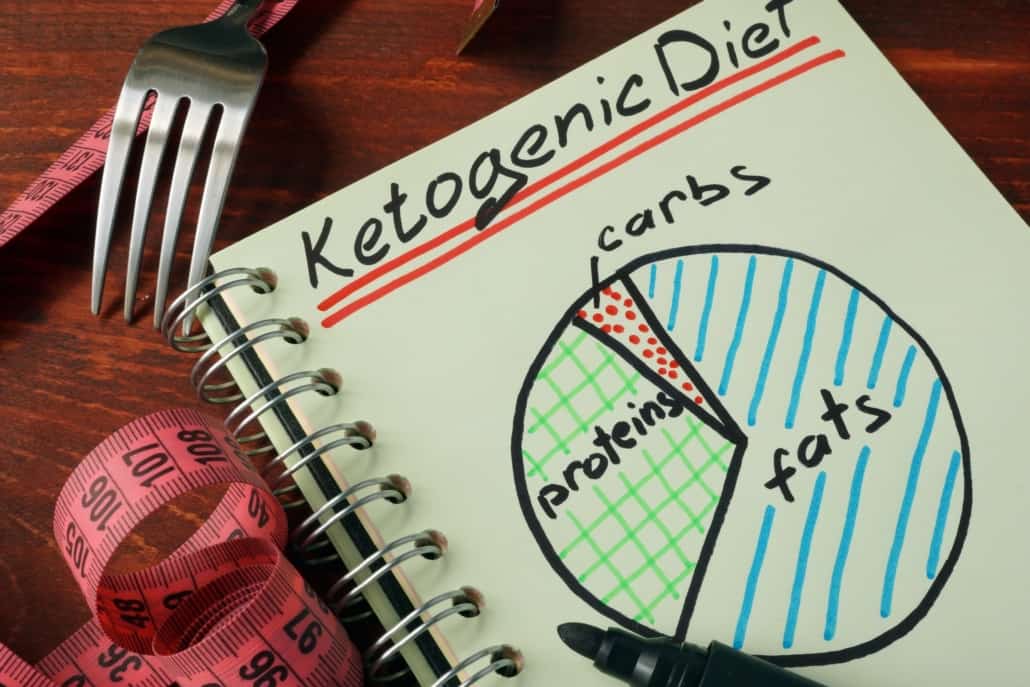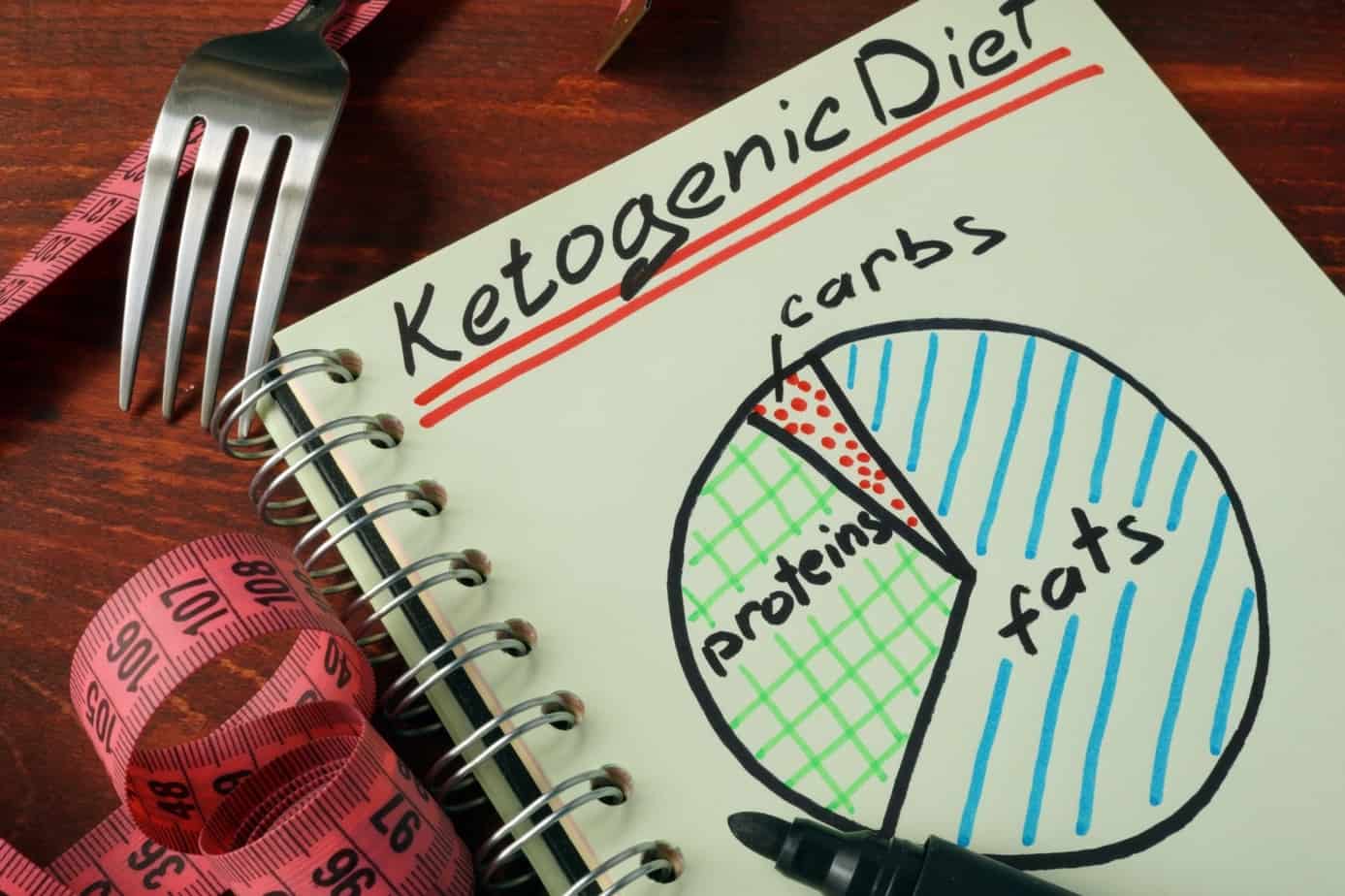The ketogenic diet: Could it be beneficial for team sport athletes?
The ketogenic diet consists of a high fat, adequate protein, and low carbohydrate intake but limited research has been conducted on the impact of this diet in team sport athletes.
- Objective
- What They Did
- What They Found
- Practical Takeaways
- Reviewer’s Comments
- About the Reviewer
- Comments

Original study
Antonio Paoli, A., Mancin, L., Caprio, M. et al. Effects of 30 days of ketogenic diet on body composition, muscle strength, muscle area, metabolism, and performance in semi-professional soccer players. J Int Soc Sports Nutr 18, 62 (2021). https://doi.org/10.1186/s12970-021-00459-9. PMID: 34530857
Click here for abstract
OBJECTIVE
The ketogenic diet consists of a high fat, adequate protein, and low carbohydrate intake (<5% of total daily energy intake). Very low intakes of carbohydrates (normally <50g) lead to physiological ketosis in the body. In this process, ketone bodies are released from the liver from the breakdown of fats and converted to acetyl-CoA, which enters the Krebs cycle and is oxidised for energy.
The ketogenic diet has been considered a possible alternative to extreme caloric restriction to tackle increases in body fat by athletes in the off-season. However, research on the ketogenic diet is conflicting. Certain studies report negative effects on performance following the ketogenic diet, whilst others suggest a positive effect, or no difference compared to ‘western’ diets. However, limited research has been conducted on the impact of the ketogenic diet in team sport athletes.
This study investigated the effects of 30 days of a ketogenic diet on body composition, muscle strength, muscle area, metabolism, and performance in semi-professional soccer players.
WHAT THEY DID
Sixteen semi-professional male soccer players participated in this randomised, parallel arm, controlled, prospective study. Participants were randomly assigned to consume a very low carbohydrate ketogenic diet or a western diet for 30 days.
Athletes assigned to the ketogenic diet were provided with nutritional counselling and resources that encouraged the consumption of beef, veal, poultry, fish, raw and cooked vegetables without restriction: protein 1.8g.kg.d-1; carbohydrate: <30g.d-1; fat: 65-70% of total calories. The western diet was composed to ensure constant energy and macronutrient balance: protein: 1.8g.kg.d-1; carbohydrate: 50-55% of total calories; fat: 20-25% of total calories.
Training was strictly controlled so that all participants conducted the same level of physical activity (eight hours per week).
Participants were tested on three different days in the week before and after 30 days of dietary intervention. On day one of testing, participants’ respiratory exchange ratio, resting energy expenditure, body composition using dual-energy X-ray absorptiometry and cross-sectional area of the quadriceps were measured. Following one day of rest, participants performed a counter movement jump test. Following two more days of rest, participants completed a yo-yo intermittent recovery test level 1. Maximal voluntary isometric contraction (strength) of the right quadricep was also assessed.
WHAT THEY FOUND
Total calorie intake was reduced in the ketogenic diet (KD) group (-16%) and western diet (WD) group (-18%), with no significant difference between groups.
Changes in body fat (KD: -1.55kg; WD: -0.92kg), visceral adipose tissue (KD: -63g; WD: -27g), waist circumference (KD: -4.19cm; WD: -1.38cm) and extracellular water (KD: -3.43%; WD: 0.03%) were significantly greater in the ketogenic group than in the western diet group.
Lean tissue mass, quadricep muscle area, maximum strength and resting energy expenditure showed no changes in either group.
Respiratory exchange ratio decreased significantly in the ketogenic group, but no significant changes were observed in the western diet group (KD: -14.18%; WD: -2.85%).
Both groups improved significantly in the Yo-Yo intermittent test (KD: +28.04%; WD: +44.6%2) and countermovement jump (KD: +8.52%; WD: +3.60%), with no significant difference between groups.
[optin-monster-shortcode id=”jyyw4xzrpuivfz8gggx4″]
PRACTICAL TAKEAWAYS
JAMES MOREHEN’S COMMENTS
“Adherence plays a central role in the success of athletes following a ketogenic diet. I would question whether eliminating or heavily restricting carbohydrates from the diet is necessary, since safe body composition manipulation can be achieved through a western diet.
“Until more research has been conducted on the ketogenic diet for team sports athletes, practitioners should turn their attention to educating players on strategies to manipulate their current diets to optimise fat loss during the off-season. For example, periodising carbohydrates to fuel for the demands of training, focusing on low-glycaemic foods and increasing protein intake are targets that athletes can adhere to and may be more relevant than a strict ketogenic diet.”
Want to learn more?
Then check these out…
Read this article
Read this article
Listen to this podcast
Watch this video
Want more research reviews like this?
Every coach understands the importance of staying up-to-date with the latest sports performance research like this, but none have the time, energy, or even enjoys spending hours upon hours searching through PubMed and other academic journals. Instead, your precious time is better-spent coaching, programming, and managing all the other more important aspects of your job.
The solution…
The Performance Digest
The Performance Digest is a monthly summary of the latest sports performance research reviewed by our team of hand-selected experts. We sift through the 1,000+ studies published in the realms of sports performance every, single month and review only those which are important to you. Each monthly issues contains 15 research reviews in all of the following disciplines:
This comprehensive topic base ensures you’re constantly expanding your knowledge and accelerating your career as quickly as humanly possible. The reviews are also hyper-focused, 1-page summaries, meaning there’s no jargon or wasted time. We cut right to the chase and tell you what you need to know so you can get back to coaching.
Join the thousands of other coaches who read it every, single month. Click here to get instant access for free…

